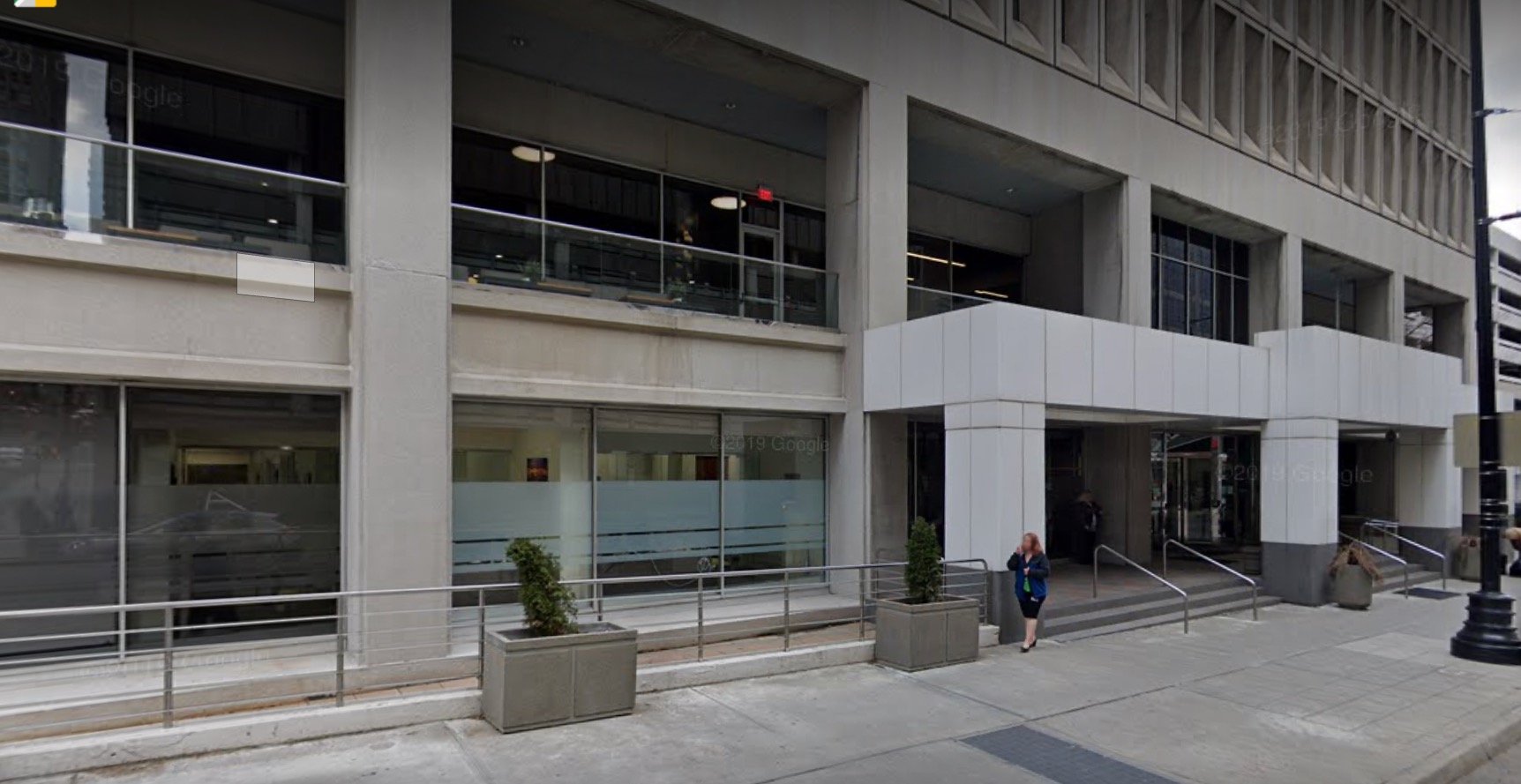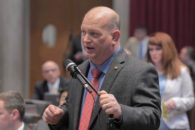Earlier this week, the Treasurer’s Office announced changes it wants to make through the Missouri Housing Development Commission (MHDC) regarding the state’s Low-Income Housing Tax Credit (LIHTC) program.
While in a St. Louis Post-Dispatch story this week, two members of the Missouri House and the insider group that represents those that profit off the industry lauded the radical changes to the program, others are questioning where the authority for the executive branch to change programs like this comes from. And some members of the commission are beginning to look at the need for wholesale staffing changes at the commission.
The changes handed down from the Treasurer’s Office would essentially require the state to outlay an additional $25 million in tax credit spending upfront in order to offer some developers the opportunity to cash out faster on their developments.
The recommendations came from the Accelerated Redemption Study Committee, headed by State Treasurer Scott Fitzpatrick. The committee unanimously approved the recommendation to expand the program from 20 percent of developments to 50 percent of credits.
Currently, developers — many from out of state — must keep the project in top working order for 10 years to realize the full value of the credits. Under the new plan, the Treasurer’s Office said those developers would be able to make more money on their projects at the same time. It said the pilot program takes the cuts off the back half of the credit stream.
While some members were quick to sign onto the executive branch’s restructure of the program, those in the upper chamber were more skeptical. Nearly all said large changes to programs should go through the legislature before being enacted.
“I appreciate everyone coming to the table to look for solutions and savings in our state LIHTC program. I do think it is important to preserve the role of the legislature as the entity with ultimate oversight and final input for this program and any other like it,” said Sen. Caleb Rowden. “The branch that writes the budget must have full authority in determining whether these pilot programs truly provide a meaningful impact to the taxpayer.”
The upfront increase in tax credit spending was also a concern to the vice chairman of the Senate Appropriations Committee, Sen. Lincoln Hough.
“When the state treasurer introduced his legislation through the House, his former colleagues chose not to pass it. I would have wanted to include more stringent safeguards for the taxpayers. I expect before the pilot program expands and has major and immediate fiscal implications on the state budget, that any executive branch commission would submit those changes to the General Assembly before implementing them,” Hough said. “If they chose not to do so — or as in this case, submitted them to the General Assembly and had them rejected and went forward with them anyway — I believe this body would then be forced to take a very close look at that appointed commission.”
While some House leaders were enthusiastic in their praise for the executive branch changes, one sophomore House member who agreed to speak on background was quite candid in his reaction.
“First of all, no one should be surprised, but I seriously doubt anyone in the sophomore — or for sure, freshman — class was consulted about this ‘compromise reform’ that we all know was written by the industry’s lobbyist anyway. Second, I don’t think Gov. Parson’s executive branch should be totally changing state programs without coming to the people’s elected legislature for approval. I mean what is going on over there? If Joe Biden was pulling this crap in D.C., Josh Hawley would be on Fox News firing back in 20 minutes. I don’t know why they think they can get away with it in Jeff City except that we let them.”
Sen. Bill Eigel, a leading member of the upper chamber’s Conservative Caucus and a prominent voice for reform on the issue, said: “I’ve always been a fan of reforming our economic development programs and applaud the efforts of anyone that wants to add a productive voice to that discussion. However, the Low-Income Housing Tax Credit program is defined and authorized by state code passed by the state legislature. It would be a breach of the natural separation of powers of government for the MHDC or any executive branch authority to attempt unilateral modification of this — or any other — tax credit program. No one currently sitting on the MHDC has contacted our office about any legislative changes to the program this year, so it’s surprising this came up as suddenly as it did. Most folks on the MHDC have a lot of political experience. They likely know that cutting out the legislature on changes made to legislative programs normally ends poorly once January rolls around on the calendar.”
A spokesperson for the treasurer said the recommendations are within the existing authority awarded to MHDC and LIHTC through state statute.
“When the legislature failed to pass a bill reforming LIHTC, many legislators requested that the commission pursue administrative reforms within the confines of existing law so the program could be restarted as opposed to keeping the program dormant for another year and waiting on the legislature to make another attempt at reform,” Mary Compton, communications director for the Treasurer’s Office, said.
“The same safeguards, requirements, oversight, and documentation are in place as for all standard credits issued by MHDC,” she continued. “The payment schedule is the only difference. Accelerated redemption earns a bigger return on Missouri tax dollars by increasing the amount of low-income housing built for the same price, something all Missourians should want and support.”
Questions inside MHDC
While it’s clear legislators are going to be asking questions about executive overreach, this report spurred some acrimony among commission members as well.
Two MHDC commissioners agreed to speak on background about the situation inside the commission. Their observations questioned the structure of the commission and the commitment on behalf of the executive branch to keeping an eye on how it’s run.
One member of the study group recounted the meeting where the plan was presented: “I was on this study group, and first of all, the entire staff of that commission really now just works for the state Treasurer’s Office. They run every single thing about this commission. I can’t tell that anyone from the Governor’s Office is even engaged or is more than a passing annoyance to them, and no one on the staff here will order paper clips without the Treasurer’s Office telling them where to buy them from. I was told it hasn’t always been this way, but it’s bizarre.”
“They all came in together [the Treasurer’s Office staff and MHDC staff] and told us this was how they had decided: that in one year, this idea we were told was a trial effort, was so great we were now going to change the entire structure of the program,” he continued. “One of the other commissioners dared to ask a question, and they all just glared at him for being off script. He asked if we needed legislative approval before spending this much money, and there was just a shrug and no real answer. I followed up after the meeting and was assured that no one in the legislature would care as long as we kept saying it was ‘reform,’ whatever that means and they laughed.”
Another commissioner expressed total frustration with the MHDC staff’s ability to be candid in communicating with the commissioners.
“There is no question in my mind that you have four statewides on the commission. Three pay MHDC very little to no attention to MHDC, and the state treasurer is obsessed with MHDC. Which, I think it’s good that he is involved; Scott is a smart guy, but the way the MHDC staff has just folded into being essentially assistants to the State Treasurer’s staff is nearly comical. Honestly, I’m for cutting waste in government, and if MHDC is just gonna be run from the Treasurer’s Office then we should just cut our staff out and save the state quite a bit of money.”
“I honestly think the lobbyist is wrong, and the legislature will have something to say about this, but I’m beginning to think that there some folks whose real goal is to kill MHDC, and constantly changing it and poking a stick at the legislature is just a way to create enough problems that the state just pulls the plug. What is funny is that the staff here is more book smart than people smart and are actively contributing to ending their own jobs. I don’t get to talk to him, but the governor probably needs to ask a few questions.”
MHDC staff did not respond to calls for comment.
The next MHDC meeting will be next month when the commission will be tasked with either changing the program through executive action or submitting the changes in legislation.
This story has been updated.

Kaitlyn Schallhorn was the editor in chief of The Missouri Times from 2020-2022. She joined the newspaper in early 2019 after working as a reporter for Fox News in New York City.
Throughout her career, Kaitlyn has covered political campaigns across the U.S., including the 2016 presidential election, and humanitarian aid efforts in Africa and the Middle East.
She is a native of Missouri who studied journalism at Winthrop University in South Carolina. She is also an alumna of the National Journalism Center in Washington, D.C.
Contact Kaitlyn at kaitlyn@themissouritimes.com.

































